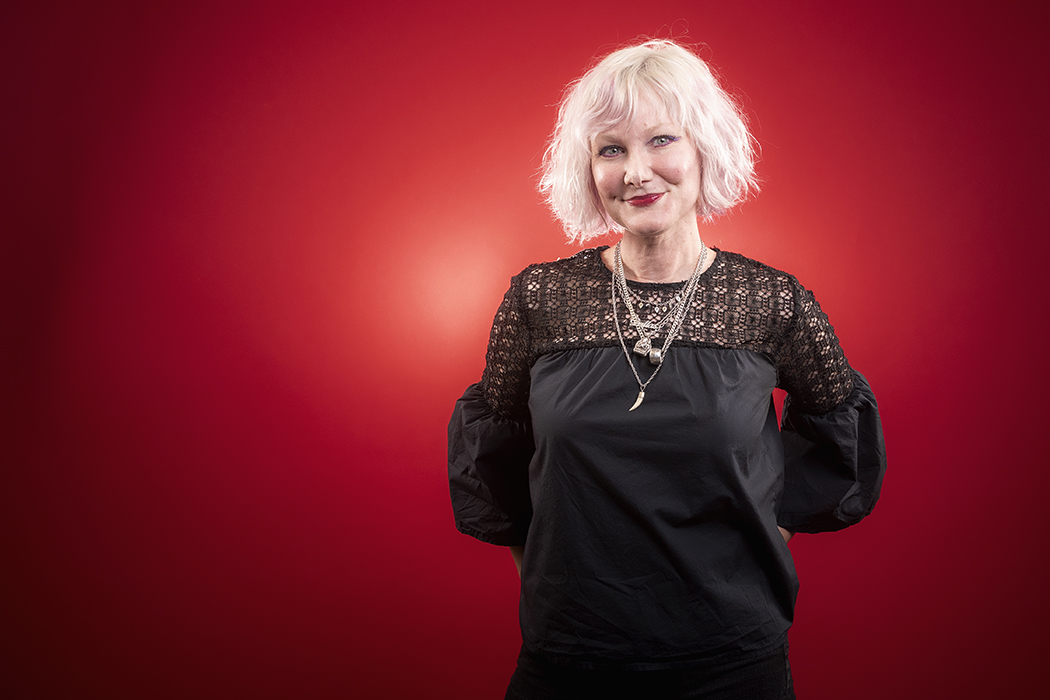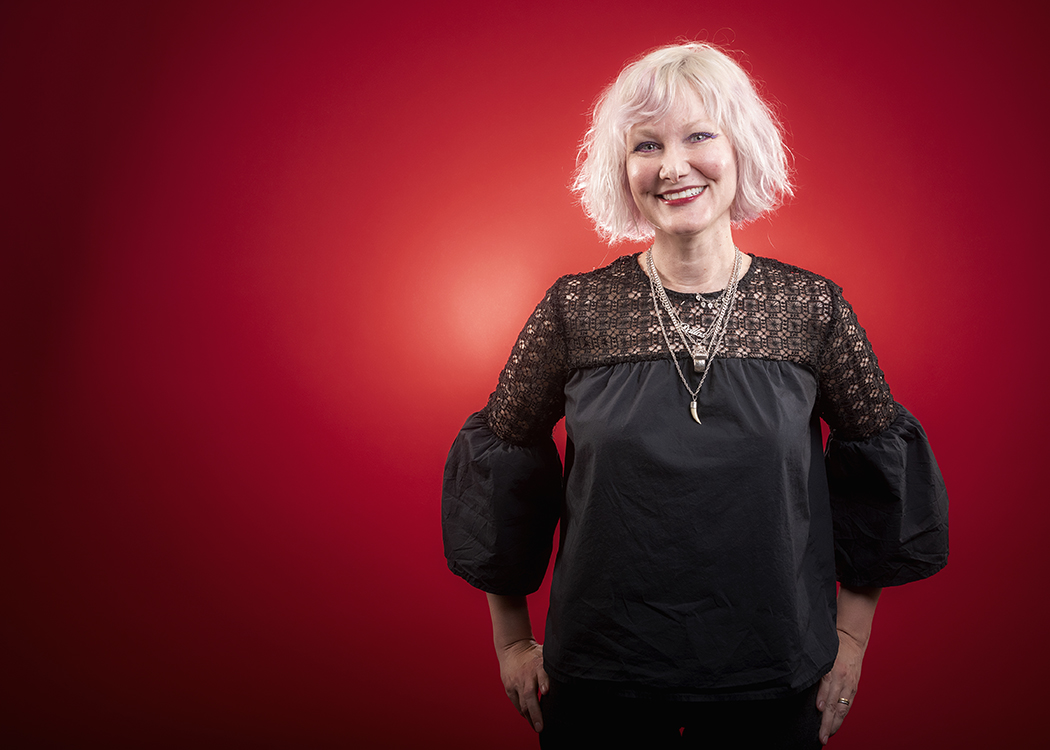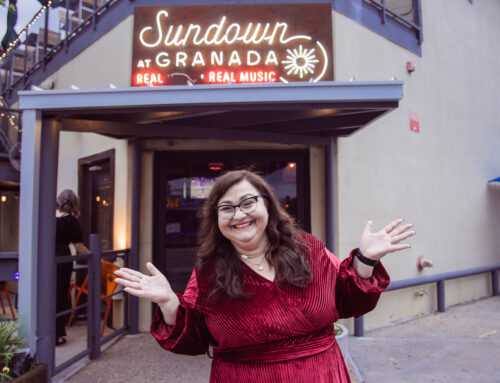
Photography by Danny Fulgencio.
Julie Ross readily agreed when former U.S. Rep. Pete Sessions asked her to speak at a town hall event in Richardson in 2017. But she wasn’t about to endorse the Republican’s plan to repeal the Affordable Care Act and replace it with a new health care law that would gut Medicaid and other programs that help her daughter who has Down syndrome. As someone who has a mental illness, Ross rarely turns down opportunities to advocate for people with disabilities. And she’ll work with any candidate from any political party. Politicians including presidential contender Beto O’Rourke, U.S. Rep. Colin Allred, state Rep. Morgan Meyer, Dallas mayoral candidate Miguel Solis and Dallas school board trustee Dustin Marshall have all sought her counsel on disability policy. The East Dallas neighbor with a background in human rights advocacy isn’t just fighting for herself and her two daughters. She hopes that her work on statewide organizations like The Arc of Texas and national groups like Americans Disabled for Attendant Programs Today will prevent homelessness, poverty, suicide and underemployment that are often symptoms of inequality in health care.
Julie Ross

Her day-to-day responsibilities: I promote bills and try to get them passed at a state and federal level. I hope to inform the people who have the power to change the systems. I talk them to death and introduce them to people like my daughter to get them to care. People with disabilities are largely represented in terms of numbers but poorly represented in terms of advocates. We need to build allies who can continue to make changes for us.
Her favorite success story: My state Rep. Morgan Meyer in East Dallas carried a bill for me to eliminate adverse restraints for students with disabilities in the classroom. It looks like it will pass. I’ve been working with him since last session on the issue. He wouldn’t have done it if he hadn’t gotten to know my daughter. It’s putting a human face on the issue. To see him stand in front and demand that we do right, that’s evidence that we do have power and can make a difference in people’s lives.
How to improve care for people with disabilities: Our work is cut out for us. People with disabilities are more susceptible to police brutality. Women with disabilities are seven times more likely to be victims of sexual assault. People with mental disabilities are overrepresented in our prison population. You could face discrimination in employment if you say you have a mental disability. I think right now, a big concern is securing the progress we’ve made. No further attacks on the Affordable Care Act and Medicaid. In Texas, we institutionalize more people with disabilities than any other state. We need to make sure people with disabilities have access to services so they can live in their communities.

Photo by Danny Fulgencio
Her experience with mental illness: I have general anxiety disorder and depression. I take medication for those conditions. Access to mental health services and psychiatrists is critical for anyone, and it has been for me. I also have a chronic illness for migraines. I used to be denied coverage for that. When Obamacare passed, that was a big deal.
Her experience with discrimination: As a mother and a woman talking about mental illness, people judge you. When I would go to the hospital, they’d ask for a history of prior hospitalizations. When they see you’ve been hospitalized for psychiatric reasons, they’re going to relate to you in a different way. That’s a stigma that’s real.
Volunteering in Argentina: Disability rights are an extension of human rights, so I went to Argentina to work with Mothers of the Disappeared. During military coups, the government rounded up people who were young and engaged politically and buried them in mass graves. I worked with survivors and people who had survived torture. I toured a maternity ward where children of political dissidents were stolen and given to military families to raise. The mothers were killed. It reminded me of family separations at the (United States-Mexico) border. Kids are raised in foster families when their parents are deported. The fact we are doing that in this country is horrific.
On being a fierce female: I love the idea of women being fierce and using their power, but we’re also flawed and fallible. For those with chronic illness, there’s a lot of guilt involved for not being as present as you want to be. There’s the idea that productivity is value, and disability hinders that. Disability is a natural part of life. Anyone can develop a disability at any time, but they can be accepted and valued.
What she’s most proud of: I’m most proud of my family. My husband has supported me with my mental illness and journey to recovery. To be a mother to my children is the greatest gift I’ll ever have. I want to protect them and the many others this issue impacts. It’s a way to pay it forward. There have been so many people on this journey before me.





